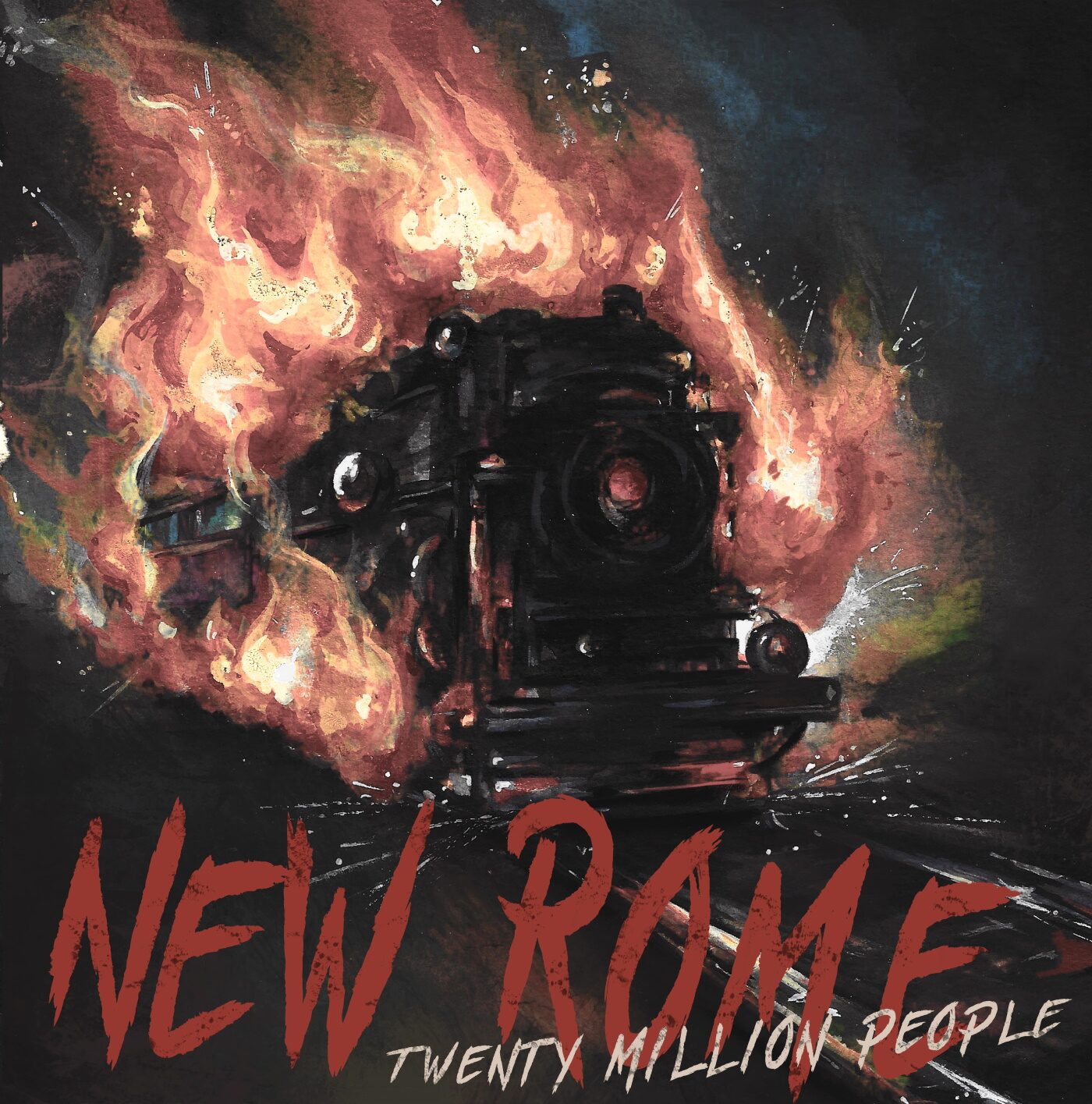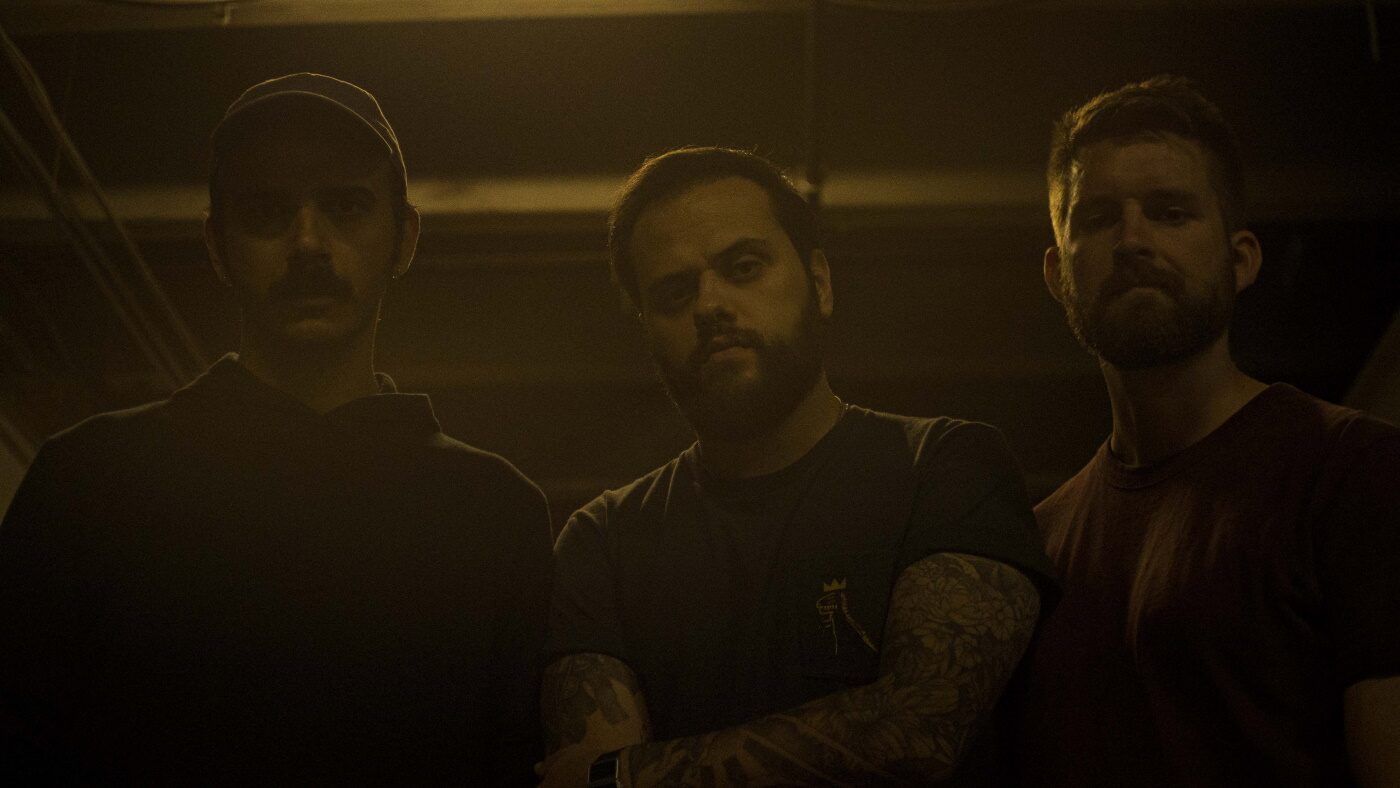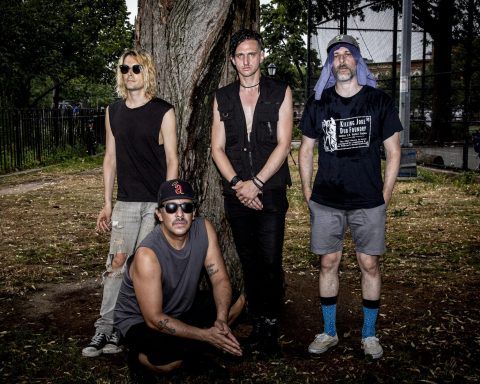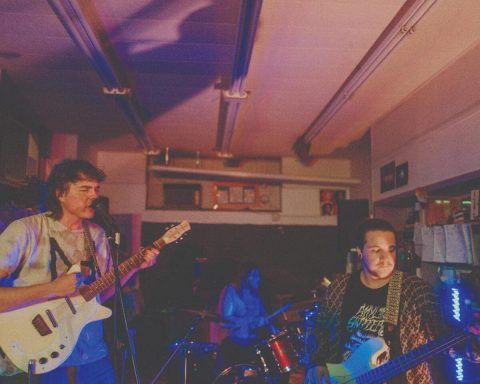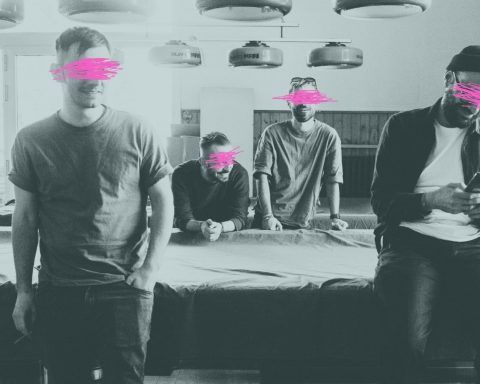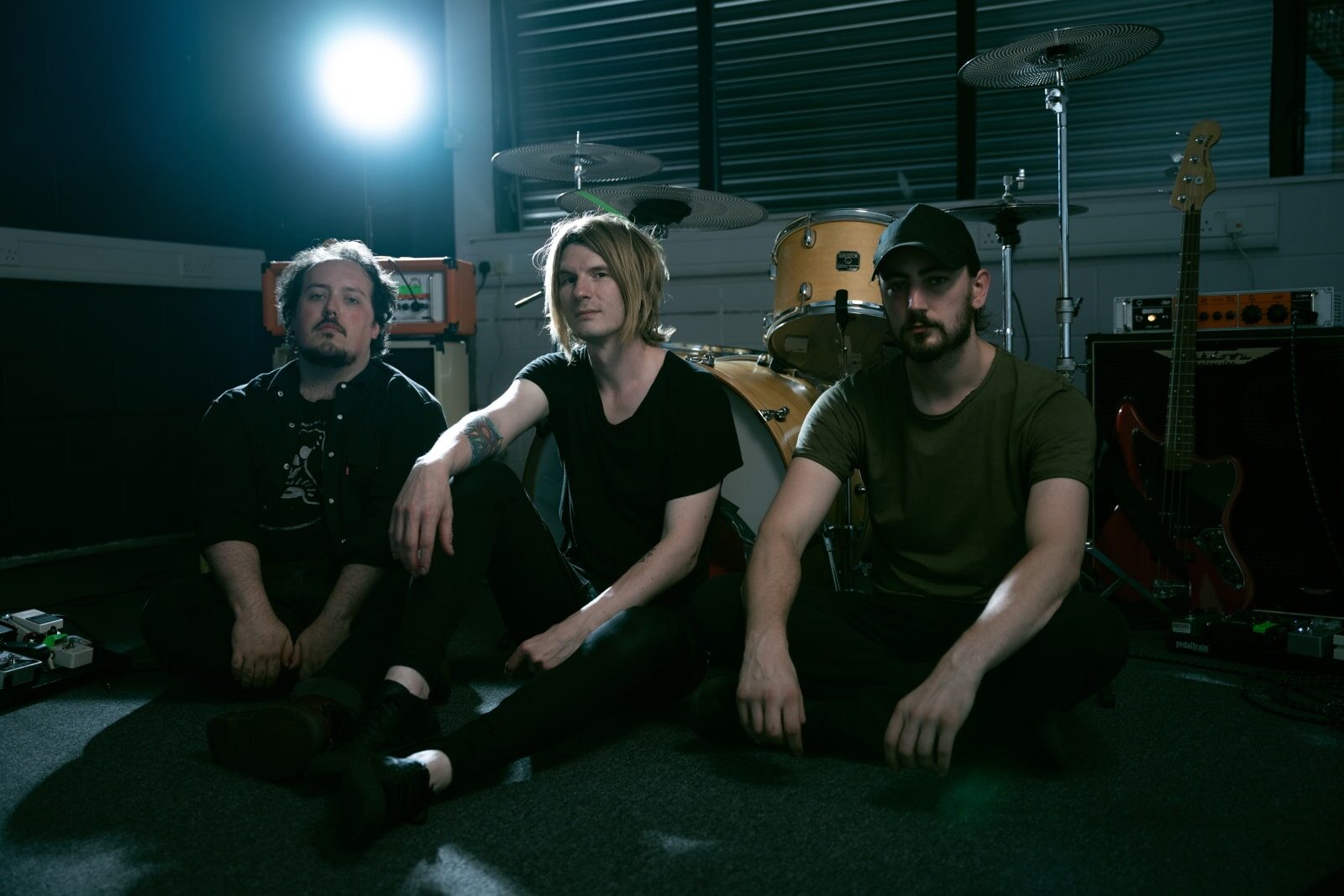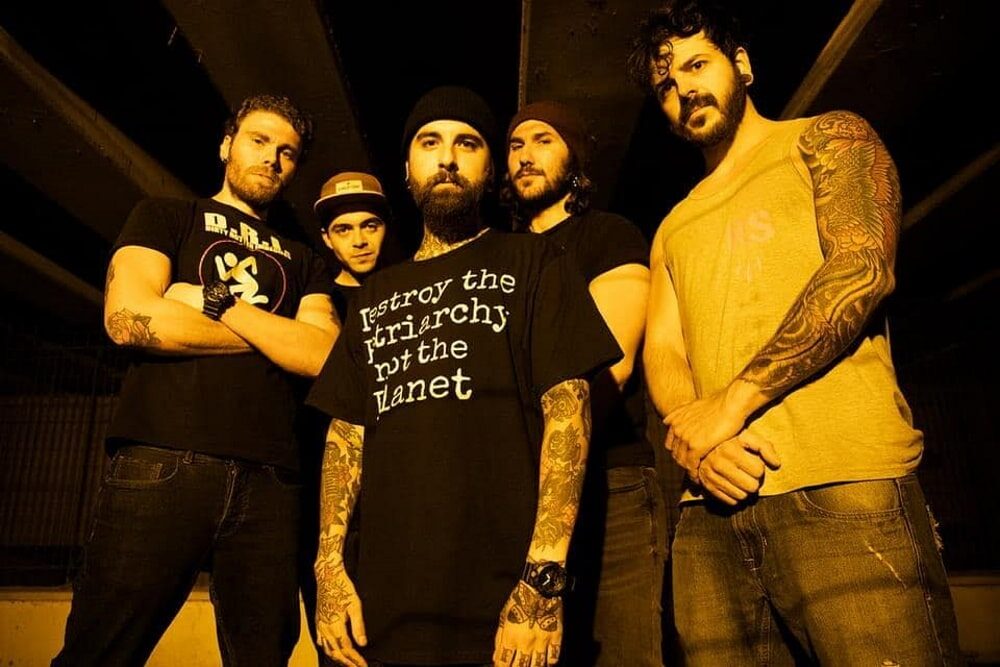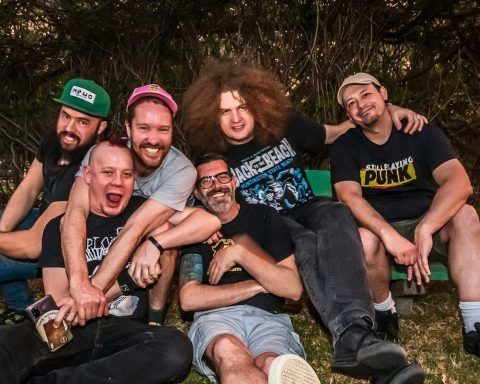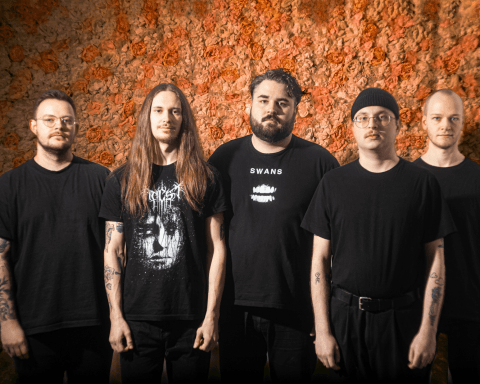TWENTY MILLION PEOPLE is a deeply personal album that tells the story of the band’s decision to leave their hometown, Istanbul, and move to Vancouver to pursue a different life. It’s thematically rooted in history and politics, the psychological condition of the people who grew up being subjected to them. We took this chance to learn more about this story and let the trio tell it in their own words.
This album is about a move, a big one. About what leads up to it, and what comes after.
Twenty Million people are: Bah Sarp – Vox, guitar, Brian Vincer – Bass, Batu Bekmen – Drums
The first half of the album deals with the exploitation, the commonplace fears, the nostalgia, and the disillusion that come with a decision to change your place of living. What comes after is living, and that’s what the second half is. “Entitlement to regret, aspirations to refuse, expectations to reality, uncertainty to anger.”.
The “New Rome”, track by track story, by TWENTY MILLION PEOPLE
“New Rome” is the product and expression of a weird batch of feelings that remained pent-up inside the three of us for years, some for all our lives. There’s anger, dejection, gloom, and something that I can only call a dark and careful hope. You know, all the fun and colorful backwash of dealing with socially inherited century-old resentments and grudges that will only make sense when I tell you that Bah (guitars, vox) and I (Batu, drums) are from Istanbul, and we left it to build new lives in Vancouver, only to meet Brian (bass) and find in him a fellow harbourer of past grievances. All that is to say that this album is about a move, what leads up to it, and what comes after.
My spouse Duygu (who’s the artist behind the cover art) and I moved to Vancouver in the very fateful month of February 2020, three-weeks before the pandemic was declared, followed by lockdowns, etc. For three months, we were stuck in an apartment that we were extremely lucky to find but drained our savings account pretty quickly nonetheless, applying to every single job ad. I finally landed a job at UPS unloading trucks, and while I was working there I started reading about migrant workers and their families who went to Germany as guest workers (Gastarbeiter) between the 1950s and the 1970s. A phrase used by the narrator of a documentary made by BBC in 1973 neatly summed up everything I came to feel about the whole thing. “Factory Fodder” opens the album. It’s a three-plus-minute ride of spasmodic anger, filled with sampled and recreated train sounds. It’s also the first song we wrote for the album, and the song that more or less set the course for our sound.
Writing for “New Rome” was an interesting process of translation, in that we wanted every song to have a single, distinct sonic statement that would reflect our collective sentiment on an issue. “Broken Middlefinger” is a prime example of this: Bah came up with the opening riff right after a conversation where we talked about the George Floyd protests and the Capitol Attack in relation to our own experiences with governmental power, the consequences of which we mentally and physically carry.
To reflect the push-and-pull feeling of protest and consequence, we wanted to have an anti-chorus where the frantic energy would suddenly drop. clipping.’s “Knees on the Ground” was a massive influence, so was “Something Underneath” (where I neatly swiped the title from, tee hee). People who tell others to stay and fight for their country don’t always know that sometimes your country won’t even let you be disappointed in it.
But that disappointment is still there, most obviously in the form of nostalgia. It’s almost funny how there’s no escaping nostalgia even though it’s a false, poisonous mental history where memories are realigned so that you can’t see anything but the silver lining. It’s a big part of moving to another city or country, the sudden changes make you romanticize the past. “Ghost of Joy” is about this, yet it’s not that I was yearning for Istanbul after moving to Vancouver.
I was yearning for a vision of Istanbul that I had already lost when I was still living there, one that I grew up believing in but was taken away by the changing political tide and a slew of terrorist attacks, suicide bombings, attempted coups, and similar what have yous that tore the city’s beating heart out. (Another bombing has just happened not over a week ago.) I remember that Bah and I were listening to a lot of Daughters around the time this song came about, probably because the way we felt about what happened was really close to the way “You Won’t Get What You Want” sounds.
But a vision is a vision, it’s not the real thing, and the real thing is complicated, it’s always been complicated. The title track, “New Rome”, was an attempt at dealing with this, closely examining your relationship with your roots to replace the nostalgia with retrospect.
Learning about your country’s history outside the official storytelling is always somber and sobering, and that’s what we wanted the song to reflect. There are many lyrical and instrumental references and Easter eggs in the song, the most prominent one being “Dawn”, Lorca’s weird love letter to New York.
I guess I see “New Rome” as closing the first half of the album, not just because it sits right in the middle, also because thematically, the album takes a turn for the personal with “Betterland”.
It’s hard to comment on all of this without sounding extremely navel-gazey, but growing up in Istanbul as a middle-class, city-dwelling, overeducated fucktard like I was, you were busy with nothing but your potential, what you could be. I suppose it’s not really different here in Canada, one big exception being the issue of access. It’s fundamentally frustrating to grow up in a quasi-European part of a country that, like the rest of the world, is and has been for decades bombarded with the cultural products, codes, and values of North America, the most prevalent of which is the pursuit of self-realization. You are told to achieve this by consuming and/or creating, neither of which you have enough resources for as your limbs are bound with currency, language, and bureaucracy while your mind wanders. Although, I must say that I was surprised when I realized that there was something universal in this sentiment.
Writing “New Rome”, we felt like we were dealing with a whole new set of problems, mostly about whether or not there was any need for it. This must seem strange, but it did give us “Kill the Houselights”.
I’m sitting at a coffee shop right now in Vancouver, typing these words as a dozen other people around me are typing theirs, busy with their own personal projects and undertakings that mean the world to them but probably so little to the world. That look of frustration on their faces is familiar to me, because the only thing the people who are able to take their thousand-dollar laptops for a stroll and a cup of overpriced coffee at 11AM on a Thursday have in common are their precious personal projects. Validation is a need, and every effort for art and expression is vain and inferior if you overthink it. The solution is to work all the time so you don’t have time to dwell on all of this unwanted by-product. Genius, right?
I am tempted to say that, sonically, “Betterland” and “Kill the Houselights” represent a different side of the band, but it wouldn’t be accurate. We love Midwest emo as much as we love metal, and we pull from everything that lets us give better musical form to our thoughts and ideas. That’s why we like using the post-hardcore genre tag, it can mean so many things that it’s ultimately meaningless. I think location is a better identifier of sound than genre tags, your surroundings give wider context to what you do and who you are. This was what I was thinking about during a stroll in a particularly affluent neighborhood in Vancouver, which just for a quick second made me ask myself if it was somehow wrong for me to be walking there. This is a silly thing to be worried about, but I did sincerely worry about it even if it was for a brief second. When I told Bah about it he went to his room, took his guitar, and produced the shrieking, dissonant chord that opens “Chokehold”.
That silly thing is a product of adolescent anger and confusion, and it is with us, always, for this or that reason. Being a stranger and a newcomer elevates it, but I’ve come to understand that it’s a part of the human condition. We all feel time passing, hate having our years wasted, worry about our potential, what could have been.
We meant “Half Your Life” to be an affirmation of that sentiment. Fake joy is no joy, fake gratitude is ungrateful, if you’re angry be angry. There’s no going around feelings, there is no processing them without letting yourself feel them. We’ve lost friends to drugs, obstinate governments, the culture of work, radicalism. Some things have no silver linings.
A lot of artists use ‘honest’ to describe their music. I don’t know if I can use that for “New Rome”. No matter how direct it sounds sometimes, it still is a carefully curated and processed expression of who we are and what we stand for. But it’s not escapist, and we are proud of that.



